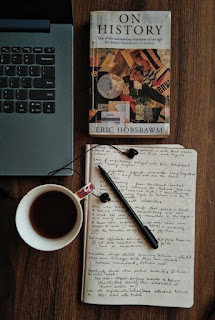Featured
- Get link
- X
- Other Apps
How To Pick a Research Topic
After sharing the blog post on how to find resources for a research project, I realized that I hadn’t made a post about how to pick a research topic in the first place. I’ve already made a Youtube video on this topic as well, so make sure to check that out too!
The first thing that comes to my mind when I’m picking a research topic is: what is this class about? Does this class cover a specific geographical region, like the Middle East? Does it cover a specific time period, like the 15th to 18th centuries? Or, does it focus on a broad concept, like art? Your research topic should be something that falls within the limits of what the class is about (i.e. you wouldn’t write about military theory in an art history class, or about French politics in a Latin America course).
Once you’ve determined the range and scope of what you can research, the next thing to do is to think about what attracted you to that class in the first place. If you didn’t take this class willingly, and are in it to fulfill some requirement, then ask yourself, “What was the thing that I found most intriguing in the course? What did I relate to the most?” I’ve always been a big believer in the idea that the best research topics come from the things that excite you the most.
Now that you’ve narrowed the scope of research down to the subject of the class, and thought about topics that interest you, it’s time to ask questions. Every research paper needs a question, otherwise it’s just a book report or encyclopedia entry. Make sure it’s a question that allows for debate, for various angles and perspectives. If the question you ask in the paper is a simple “yes” or “no” question, there won’t be anything to write about, analyze, or consider because the answer will be obvious.
After this, most professors will have their students fill out some kind of form or assignment describing their research topic. These assignments will also usually involve finding and listing some sources, just so that the professor can make sure that there is enough information out there for you to work with and that the project is actually doable. I have tips for finding research sources here.
I hope you have a great time researching, and good luck with your paper!
Next week we’ll be talking about productivity!
Image from: https://www.pinterest.com/pin/38351034317660596/
- Get link
- X
- Other Apps
Popular Posts
7 Things to Keep in Mind When Registering for Classes
- Get link
- X
- Other Apps



Comments
Post a Comment